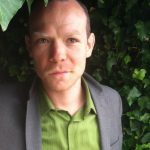Node Smith, ND
Activity May Increase Brain Function in Children
Well, active children may not actually be more intelligent than non-active children, however their brains may function better. A recent study from the University of Granada, has shown, seemingly for the first time, that physical exercise in children may have an impact on brain structure.1 The thought that this may also be associated with academic performance is also possible.
Physical Fitness in Children Correlates to Larger Volume of Grey Matter in Regions of the Brain
The research team specifically found that physical fitness in children is correlated with a larger volume of grey matter in many cortical and subcortical regions of the brain. This was more significantly noted with physical exercise that concentrated on aerobic capacity and motor ability.
Aerobic Capacity and Brain Activity
Aerobic capacity was noted to be associated with an increase in premotor cortex and supplementary motor cortex (frontal lobe), hippocampus and caudate nucleus (subcortical), inferior temporal gyrus and parahippocampal gyrus (temporal lobe), and the calcarine cortex. All regions are important to executive functioning and learning. Not surprisingly, there are also areas of the brain that are important for motor and visual processing. The hippocampus specifically is involved in the creation and storage of memory, as well as associating memories and emotions.
Is Physical Activity Beneficial for Academic Performance?
The authors of the paper answer the question of whether physical activity is beneficial for academic performance: “The answer is short and forceful: yes, physical fitness in children is linked in a direct way to important brain structure differences, and such differences are reflected in the children’s academic performance.”
Source:
- Castro-piñero J, Perez-bey A, Segura-jiménez V, et al. Cardiorespiratory Fitness Cutoff Points for Early Detection of Present and Future Cardiovascular Risk in Children: A 2-Year Follow-up Study. Mayo Clin Proc. 2017
Image Copyright: <a href=’https://www.123rf.com/profile_yarruta’>yarruta / 123RF Stock Photo</a>
 Node Smith, ND, is a naturopathic physician in Portland, OR and associate editor for NDNR. He has been instrumental in maintaining a firm connection to the philosophy and heritage of naturopathic medicine among the next generation of docs. He helped found the first multi-generational experiential retreat, which brings elders, alumni, and students together for a weekend camp-out where naturopathic medicine and medical philosophy are experienced in nature. Four years ago he helped found the non-profit, Association for Naturopathic ReVitalization (ANR), for which he serves as the board chairman. ANR has a mission to inspire health practitioners to embody the naturopathic principles through experiential education. Node also has a firm belief that the next era of naturopathic medicine will see a resurgence of in-patient facilities which use fasting, earthing, hydrotherapy and homeopathy to bring people back from chronic diseases of modern living; he is involved in numerous conversations and projects to bring about this vision.
Node Smith, ND, is a naturopathic physician in Portland, OR and associate editor for NDNR. He has been instrumental in maintaining a firm connection to the philosophy and heritage of naturopathic medicine among the next generation of docs. He helped found the first multi-generational experiential retreat, which brings elders, alumni, and students together for a weekend camp-out where naturopathic medicine and medical philosophy are experienced in nature. Four years ago he helped found the non-profit, Association for Naturopathic ReVitalization (ANR), for which he serves as the board chairman. ANR has a mission to inspire health practitioners to embody the naturopathic principles through experiential education. Node also has a firm belief that the next era of naturopathic medicine will see a resurgence of in-patient facilities which use fasting, earthing, hydrotherapy and homeopathy to bring people back from chronic diseases of modern living; he is involved in numerous conversations and projects to bring about this vision.
